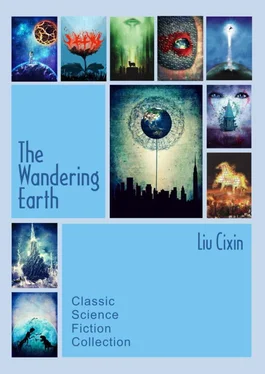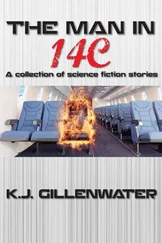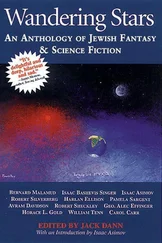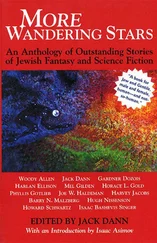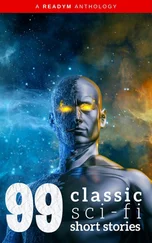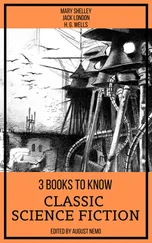I felt as if I was the only human in this cosmos of infinite stars and endless ice, and I was overwhelmed by an avalanche of loneliness. At the edge of tears, I sped on, racing as if my life depended on it. My race was no longer for a spot on the podium; it was to rid myself of this terrible loneliness before it killed me. In my mind there was no longer a far shore for me to reach.
Just as these thoughts raced through my head, I saw the silhouette of a person against the horizon. As I closed in, I realized that it was a woman. She was standing next to her sled, her long hair fluttering in the icy wind. You may already have guessed that it was this chance encounter that would shape the second half of both of our lives.
Her name was Koriyama Kayoko and she was Japanese. The women’s group had set out from the starting line 12 hours before us, but her sled had been caught in an ice crack, breaking one of its runners. As I helped her with the repairs, I could not help but share the bleakness that had just overcome me.
Nodding in acknowledgment, Kayoko said, “Oh, absolutely. It was exactly the same for me! It really feels just like being the only person in the universe!” She smiled as she continued. “You know, when I saw you appear in the distance, it was just like what seeing the dawn must have been like in the Pre-Solar Age.”
After a moment I had to ask, “Why didn’t you call for the rescue plane?”
She raised her small fist and, with the perseverance so characteristic of the Japanese, declared: “This competition embodies the spirit of the human race and we all need to realize that the Earth, wandering through the universe, cannot call for help!”
I nodded, but replied, “Nonetheless, we now have to call; we don’t have a replacement runner. Your sled is broken for good.”
She grimaced and then said, “How about I hitch a ride with you? That is, if you really don’t care about your ranking.”
I really did not care, and so Kayoko and I completed the remainder of our long journey over the Pacific.
As we passed Hawaii, we saw the first light of dawn on the horizon. On this endless field of ice, illuminated by a tiny Sun, we sent our application for a marriage license to the Ministry of Civil Affairs of the Unity Government.
In New York, the race judges had◦— having impatiently waited for us◦— already wrapped up the competition and left. But there was one official waiting for us. A worker from the municipal Bureau of Civil Affairs was more than pleased to congratulate us on our marriage. He then carried out his duties. With a wave of his hand, he projected a hologram into the air, revealing neat rows of thousands upon thousands of dots; one dot for every couple that had registered for marriage in the past few days.
Due to the harsh conditions, the law stipulated that only one of every three newly married couples would be given the right to procreate as determined by the luck of the draw. Faced with the many thousand dots, Kayoko hesitated for a long while before choosing one.
When the dot turned green, she leapt with joy. I, on the other hand, did not really know what to feel. Would it be fortune or folly to bring a child into this miserable age? The official, at least was jubilant. He told us that it always made him a little happier when he got to see a newlywed couple get their “green dot”. He retrieved a bottle of vodka and poured each of us a drink. We slammed it down, toasting to humanity’s survival.
Behind us the feeble light of the distant Sun bathed the Statue of Liberty in a golden glow. Before us stood the long abandoned skyscrapers of Manhattan, the Sun’s weak light casting their long shadows across the quiet ice of the New York Harbor. In my tipsy haze, tears began to gush down my cheeks.
Earth, oh, my wandering Earth!
Before we parted, the official gave us a key ring. In a drunken drawl he said, “These are for your newly allotted home in Asia. Go home; oh, your wonderful home!”
“Why is it wonderful?” I asked coldly. “Asia’s subterranean cities are full of dangers; but you in the Western Hemisphere wouldn’t know that.”
“We are about to experience a danger that you have never known,” he shot back. “The Earth will soon make its pass through the asteroid belt and this time the Western Hemisphere is facing right toward it.”
This somewhat sobered me. “We passed through the asteroid belts a couple of times in the past few orbits; isn’t it a non-issue?”
The official shook his head as he responded. “We just scraped the edges of the asteroid belt. Of course, the space fleet could handle that. They have the lasers and nukes to get rid of all the small rocks in the Earth’s path. But this time…” He choked. “Haven’t you seen the news? This time the Earth will pass directly through the asteroid belt! The fleet can only deal with those big rocks; but the small one…”
As we were flying back to Asia, Kayoko asked me, “Are those asteroids very big?”
My father was in orbit then, tasked with securing Earth’s journey. Therefore, despite the government’s news blackout aimed at avoiding a panic, I had some idea what we were facing. I told Kayoko some of that. “The Earth is heading towards asteroids the size of large mountains; even a fifty megaton nuclear bomb would do no more than leave a small scar on their surface. They will have to use humanity’s most powerful weapon!” I added in an enigmatic tone.
“Are you talking about anti-matter bombs?” she asked.
“What else could it be?” I replied.
“What is the fleet’s operating range?” she asked.
“Currently it is limited. My father told me it’s about a million miles away,” I answered.
“Oh, then we will be able to see it!” she said excitedly.
I gave her a look of warning. “But it would be best not to look.”
But Kayoko did look, and did so without protective goggles. The first flash of an anti-matter bomb arrived from outer space shortly after our plane had taken off. Kayoko was looking out a window admiring the stars at the exact moment it happened. The flash blinded her for more than an hour. Even a month later her eyes were still red, swollen, and teary.
It shook every one of us to our core. The anti-matter shells continued to bombard the asteroid. Over and over again, the brilliant, destructive flashes seared the black heavens as if a crazed horde of titanic paparazzi surrounded the Earth and was snapping away with abandon.
Half an hour later, we saw the first meteors, their long, blazing tails cutting across the sky, enthralling us all with their terrible beauty. Ever more followed in their wake, each streaking farther than the last.
Then, the sky suddenly shook behind us with a loud boom, immediately followed by continuing rumbling and more shaking. Kayoko, under the impression that a meteor had hit the plane, screamed in fear and jumped almost right into my arms.
Just then the captain’s voice came through the speakers. “To all passengers; please do not panic. That was the sonic boom of a meteor breaking the sound barrier. I do ask everyone to use their headphones in order to avoid permanent hearing loss. Because the flight’s continued safety cannot be guaranteed, we will make an emergency landing in Hawaii.”
As the captain spoke, I saw a meteor much larger than the others fall. As I watched the fireball plummet, I became convinced that it would not burn up in the sky like the ones before it. Sure enough, it sped across half the sky and while it shrunk smaller and smaller, it struck the frozen ocean in the end. Looking at it from 30,000 feet, the point of impact was just a small white dot. But that white dot immediately spread into a white circle, rapidly expanding across the ocean’s surface.
Читать дальше
